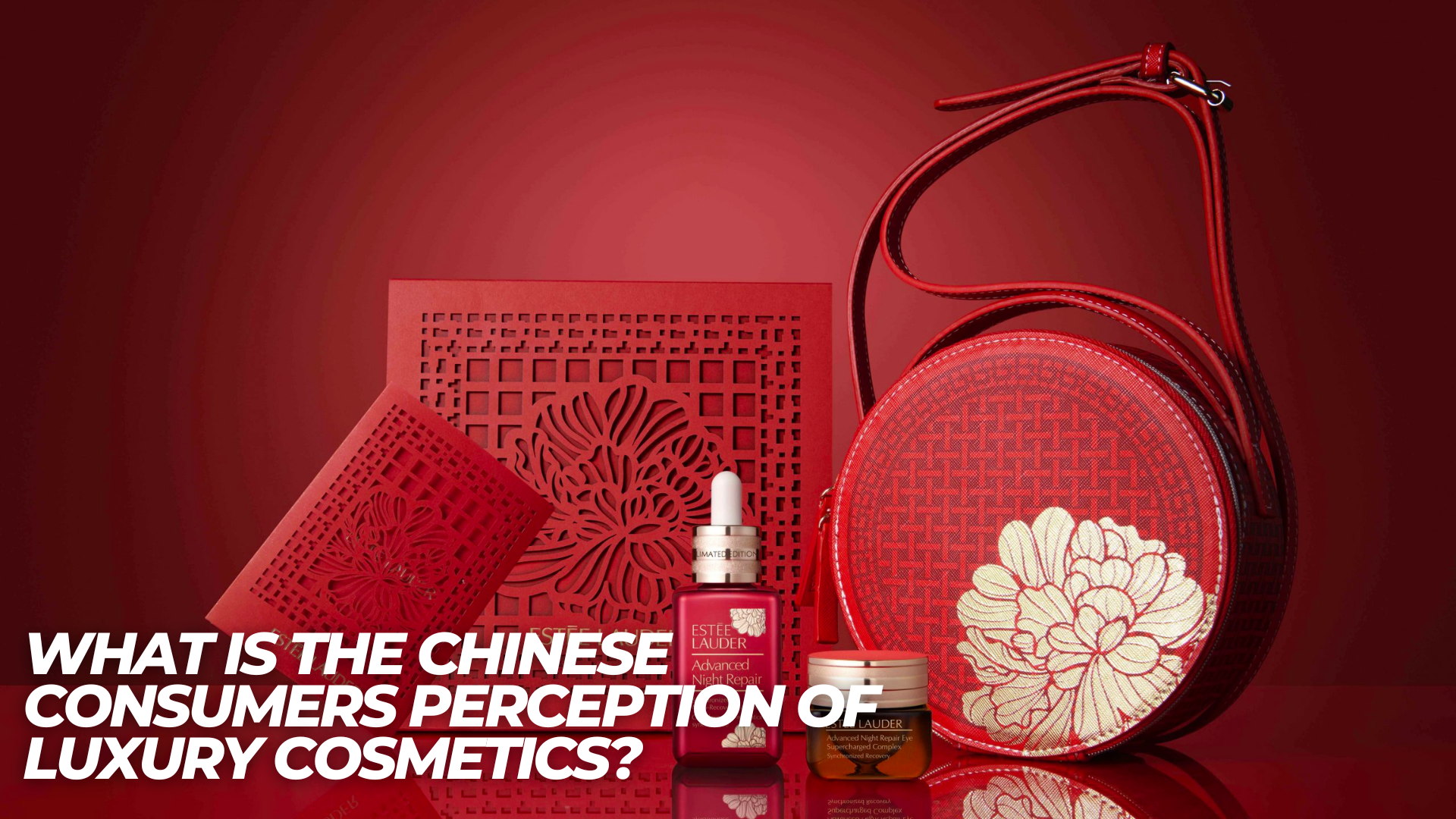The Chinese luxury cosmetics market is experiencing a rapid transformation driven by affluent and sophisticated consumers seeking the best in beauty.
With China representing 32% of global luxury consumption, understanding their perception of luxury cosmetics has never been more crucial for marketing managers and brands alike.
Younger generations, particularly millennials, are actively spending on high-end skincare products and makeup, further fueling this booming industry. As local beauty brands compete against foreign rivals to win over the hearts (and wallets) of these discerning customers, we delve deeper into the key factors shaping Chinese consumers’ views on luxury cosmetic products.
Chinese Luxury Cosmetics Market Overview
The Chinese luxury cosmetics market is experiencing rapid growth and has immense potential due to changing consumer behavior and increasing social advancement.

The luxury cosmetics industry in China is growing and diversifying rapidly due to the increasing demand from Gen-Z and male customers.
This presents many opportunities for brands that can effectively appeal to these younger, discerning consumer segments.
China’s high-end cosmetics industry is still at an earlier stage compared to its Western counterparts but is expected to reach an annual growth of 393.6 billion yuan in 2023.
For instance, more millennials turn to premium cosmetic products over mass-market alternatives for their perceived added value and superior efficacy.
Market Trends And Consumer Behavior In The Chinese Luxury Cosmetics Segment
The Chinese luxury cosmetics market is growing rapidly due to changing market trends and consumer behavior. About 28% of Chinese consumers prefer to buy luxury or premium cosmetics, creating a significant demand for high-quality products.
The industry has diversified in recent years, with Gen-Z and male consumers seeking skincare tailored to their needs, creating opportunities for both domestic and foreign high-end brands.
As China’s middle class’s purchasing power increases, there is expected to be a surge in interest in affordable luxury goods, making it a promising future for Western cosmetic brands.
Key Players And Brands In The Chinese Luxury Cosmetics Market
In the Chinese luxury cosmetics market, it’s crucial to acknowledge and understand key players and brands that dominate this sector due to their reputation, quality products, and strong presence both online and offline. These high-end beauty brands include:

- L’Oréal: With a comprehensive portfolio of premium cosmetics, this French multinational is a major player in China’s luxury beauty industry.
- Estée Lauder: Known for its skincare and makeup products, Estée Lauder has gained immense popularity among Chinese consumers seeking quality beauty offerings.
- Shiseido: This Japanese brand is renowned for its innovative skincare formulas and has established itself as a top contender in China’s high-end beauty market.
- Lancôme: A prestigious French brand with a wide range of popular skincare and makeup products appealing to Chinese customers.
- SK-II: Owned by Procter & Gamble, this Japanese luxury brand focuses on innovative skincare solutions tailored to meet Asian consumers’ preferences.
- La Mer: With its high price range, luxurious packaging, and exclusive ingredients, La Mer attracts the affluent Chinese consumer segment who prioritize quality over cost.
- Guerlain: Another esteemed French brand known for its exquisite fragrances, skincare, and cosmetics products catering to China’s upscale beauty enthusiasts.
- Sulwhasoo: A South Korean luxury cosmetic line incorporating traditional herbal medicine into modern skincare formulations has attracted significant interest from Chinese consumers.
In addition to these foreign brands, domestic players like Pechoin and Herborist are making their mark in the premium segment with unique product offerings rooted in traditional Chinese medicine principles.
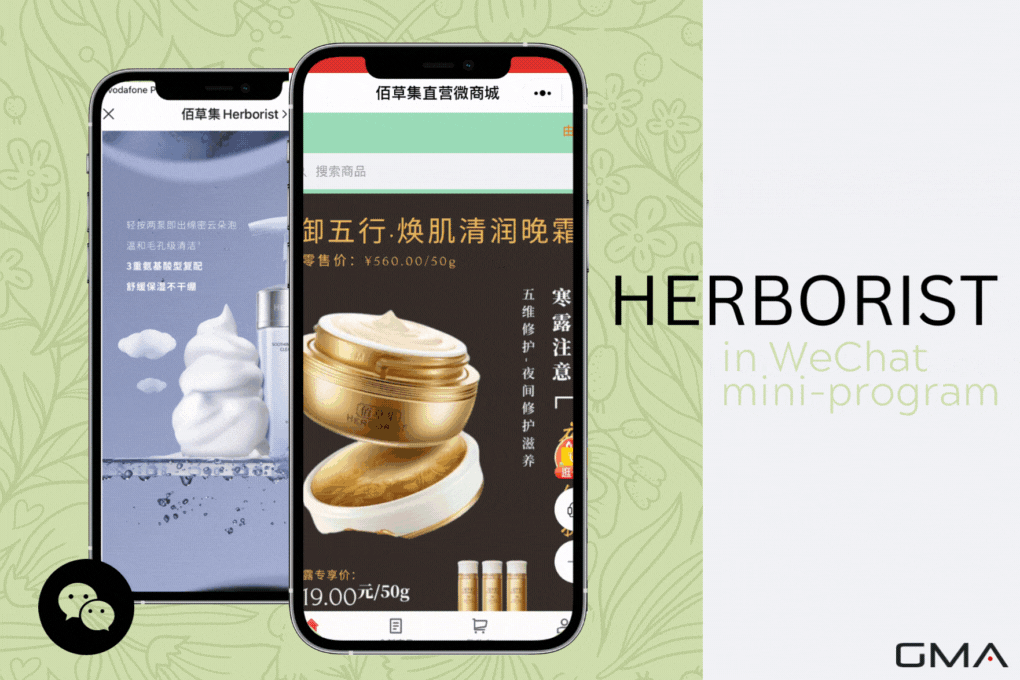
Cultural Influences On Perception
The Chinese culture has a historical perspective on beauty and luxury, which shapes traditional beauty standards and preferences, influencing Chinese consumers’ perception of luxury cosmetics.
Historical Perspective and Cultural Factors Influencing Chinese Consumers’ Perception Of Luxury Cosmetics
In Chinese culture, beauty, and luxury have been highly valued for thousands of years. The historical perspective on these concepts can be traced back to the ancient dynasties of China, such as the Tang, Song, and Ming Dynasties. Ancient Chinese civilization has always placed great importance on personal grooming and appearance, with the ideal beauty standard being fair skin, delicate features, and a slim figure.
Fair skin has long been a symbol of wealth and status, as farmers often worked outdoors while elites could afford to stay indoors. As such, many luxury cosmetic brands in China focus on brightening or whitening products to appeal to local norms.

In modern times, China’s growing economy has led to increasing demand for luxury goods. However, the perception of luxury has evolved beyond materialism to include sustainability and ethical considerations.
Moreover, collectivism is another cultural dimension that affects their outlook towards luxury cosmetics brands. Chinese people typically prioritize relationships with their family and community over individualistic pursuits like personal grooming habits.
Luxury cosmetic brands need to understand how these cultural norms shape consumer expectations while also ensuring they maintain their brand heritage in order to appeal both locally and internationally.
Brand Reputation And Image
Luxury cosmetic brands must prioritize their reputation and image in the Chinese market, as consumers place great importance on a brand’s heritage and prestige.
Importance Of Brand Reputation And Heritage In The Chinese Market
Brand reputation and heritage are crucial in the Chinese luxury cosmetics market. Chinese consumers highly value prestige and social capital, so it is essential for brands to establish a strong reputation in the market.
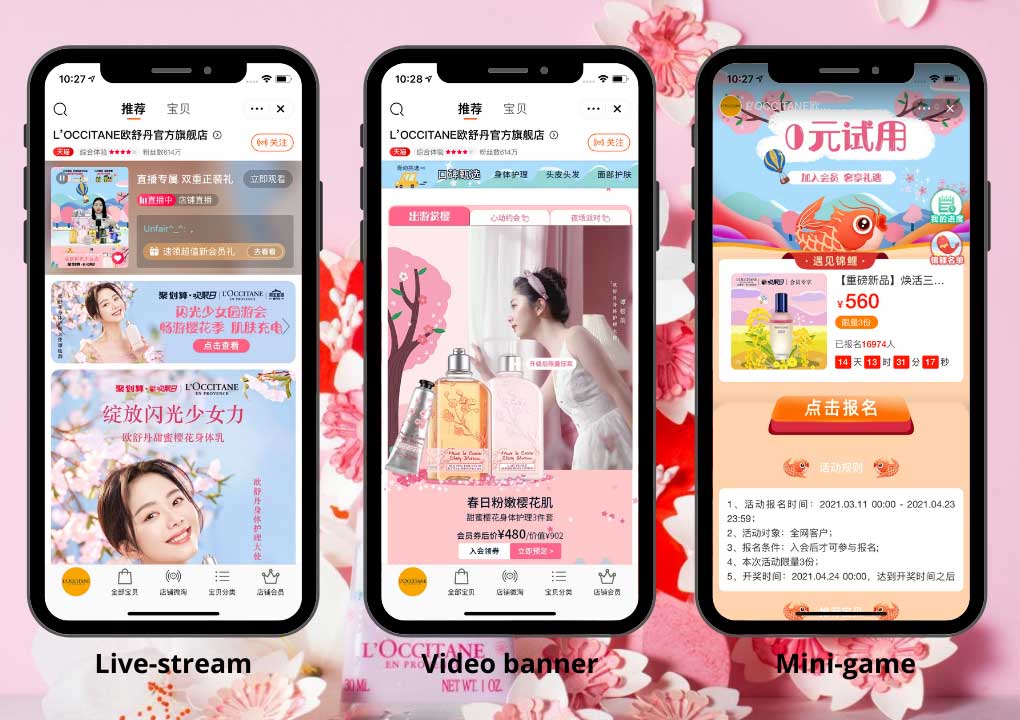
Foreign luxury brands with recognized heritage are considered premium products due to their association with Western culture.
For example, Herborist, a Shanghai-based brand, emphasizes traditional Chinese medicine practices in its formulation and packaging materials while maintaining a modern aesthetic.
Foreign Versus Domestic Luxury Cosmetic Brands
Historically, foreign brands have taken the majority share of the market with 70% in 2018.
However, Chinese consumers are now preferring Korean luxury cosmetics brands because of their innovative and trendy products.
Luxury cosmetic brands need to be aware of this shift in demand and respond accordingly. It’s also important for brands to stay up-to-date on domestic trends and offer products that appeal to Chinese consumers while maintaining their brand image and reputation.
An example of a brand adapting successfully is Lancôme which customized its product line by providing whitening serums tailored toward Asian skin tones specifically marketed within the Chinese market.
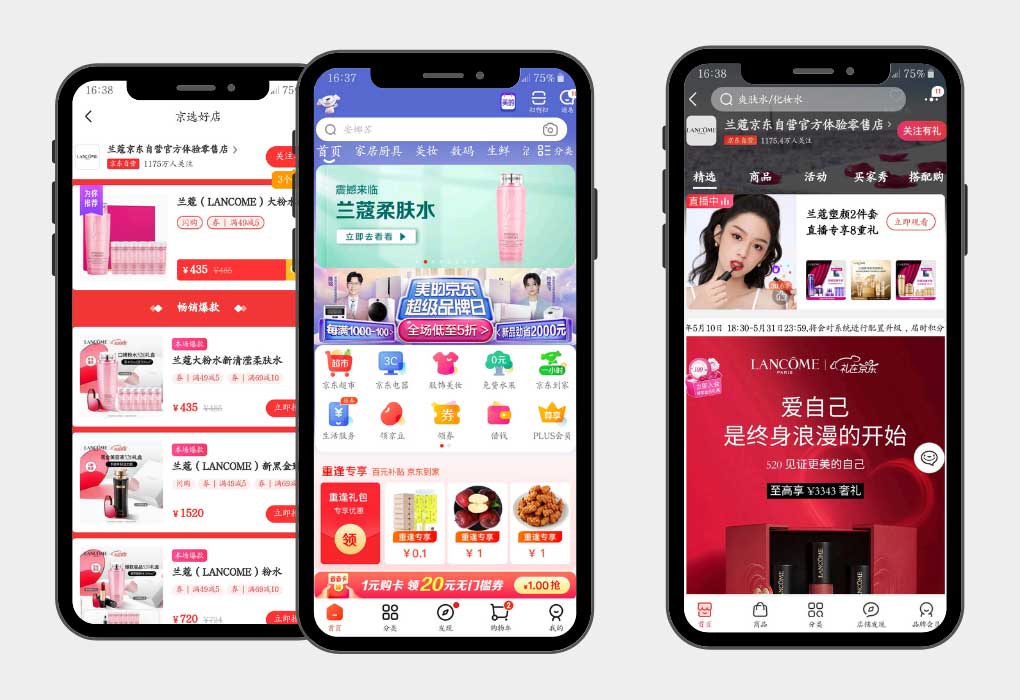
Quality And Efficacy
Chinese consumers place great emphasis on the quality and efficacy of luxury cosmetics, with considerations for product ingredients and formulation playing a key role in their purchasing decisions.
Chinese Consumers’ Emphasis On Product Quality And Efficacy
Chinese consumers highly value the quality and effectiveness of luxury cosmetics and prefer products that deliver visible results.
For example, they are willing to spend heavily on Korean luxury cosmetics brands such as Sulwhasoo and Amorepacific.

The middle class in China is increasingly interested in affordable luxury goods markets that prioritize both affordability and effectiveness.
Role Of Product Ingredients And Formulation In Luxury Cosmetics
Chinese consumers are becoming more conscious of natural ingredients and avoiding chemicals in cosmetics due to perceived risks.
This trend has led to an increase in high-end cosmetics featuring organic and bio ingredients, which undergo strict regulations to ensure safety.
For instance, affluent Chinese consumers are particularly aware of the dangers of certain cosmetic ingredients like paraben, sulfates, and petroleum distillates, and tend to prefer brands that prioritize natural and safe ingredients.
Chinese consumers prioritize product efficacy and safety when buying high-end skincare products. They expect luxury brands to provide superior performance and deliver visible results that justify their higher prices.
Packaging And Presentation
Luxury packaging plays a significant role in Chinese consumers’ perception of high-end cosmetics, with packaging design and aesthetics influencing purchasing decisions and reinforcing the perception of exclusivity and premium quality.
Significance Of Luxury Packaging In Chinese Consumers’ Perception
Packaging design is a crucial aspect of luxury cosmetics in China, as it impacts consumers’ perception of the brand, quality, and exclusivity. It reflects buyers’ tastes and social and economic status and is essential for attracting Chinese consumers.
For instance, luxury brands like SK-II use simple yet elegant packaging designs to appeal to affluent customers seeking high-end beauty products.
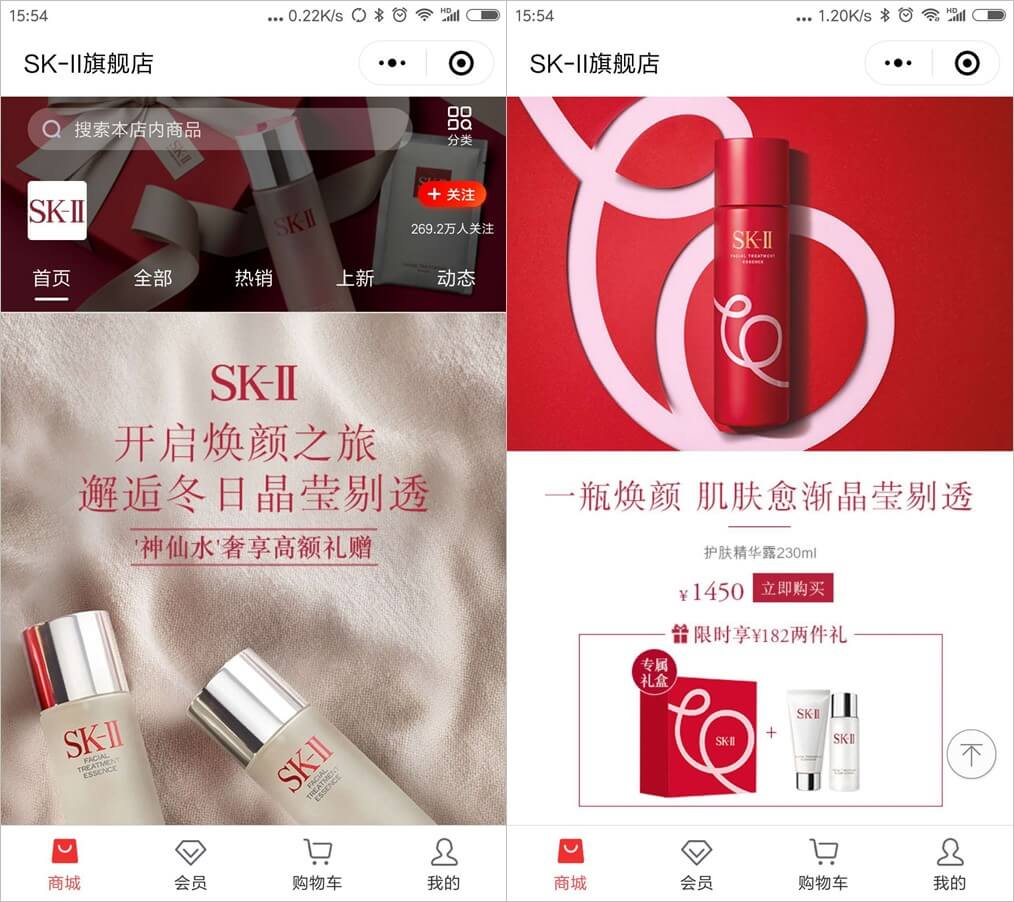
Color and shape also play a significant role in packaging design, as they strongly influence consumer preference and quality perception. Red is considered auspicious in China, representing good fortune and happiness.
Therefore many luxury brands use red packaging or accents to attract the attention of Chinese customers looking for lucky elements within a product’s presentation.
Another example, Shiseido uses traditional Japanese washi techniques to create chic paper boxes for its lipsticks, reflecting its rich heritage while still being avant-garde.
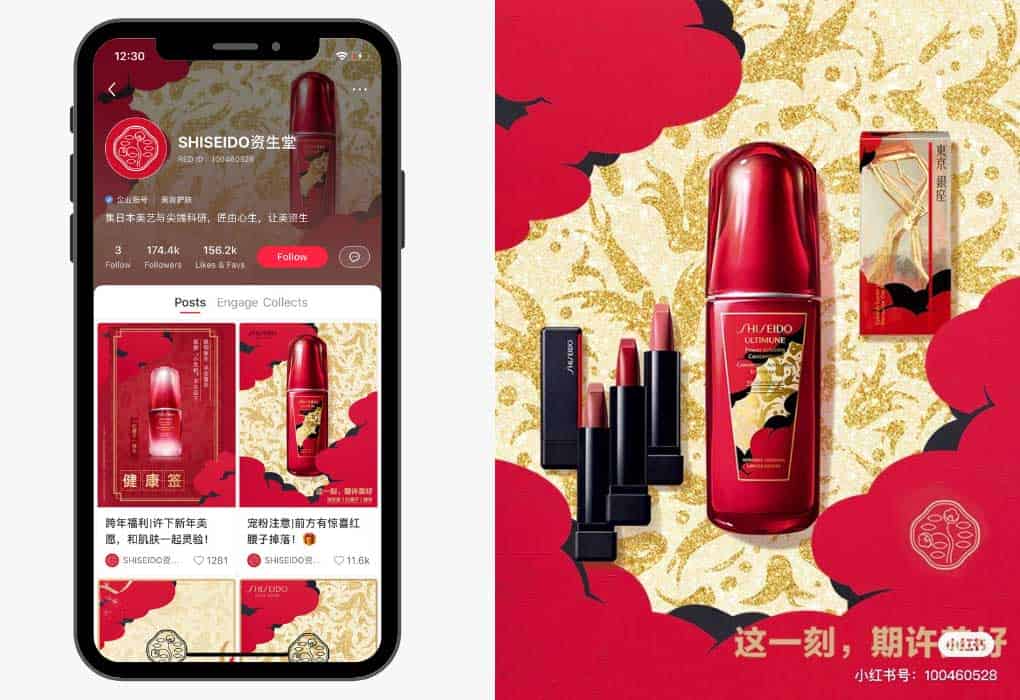
Celebrity And Influencer Endorsements
Celebrities and influencers have a significant impact on the perception of luxury cosmetics in China, with endorsements playing a crucial role in shaping consumer behavior.
Impact Of Celebrity Endorsements On Luxury Cosmetics Perception
Celebrities have a big influence on Chinese consumers’ perception of luxury cosmetics. Chinese internet celebrities are becoming more popular and have the power to influence purchasing decisions through social media.
Chinese celebrity endorsers may be more effective than Western ones in creating buzz and enhancing brand awareness.
For example, the French cosmetics brand Lancôme has seen a significant increase (by more than 50%) in sales in China since Chinese actress and singer Zhang Ziyi became the brand ambassador in 2009, with her endorsement helping to boost the brand’s popularity among Chinese consumers.
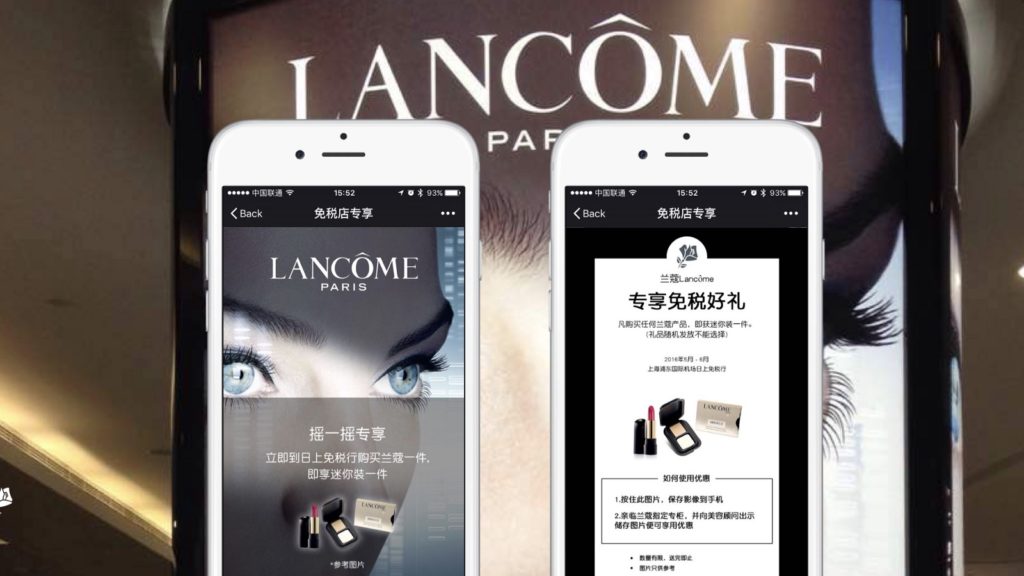
Influence Of Chinese Influencers (KOLs) In Shaping Consumer Perception
Influencer marketing is highly effective in engaging with Chinese consumers, particularly young and affluent ones. Key Opinion Leaders (KOLs) on social media platforms such as WeChat, Weibo, and Little Red Book are utilized by luxury cosmetic brands to reach their target audience in China.
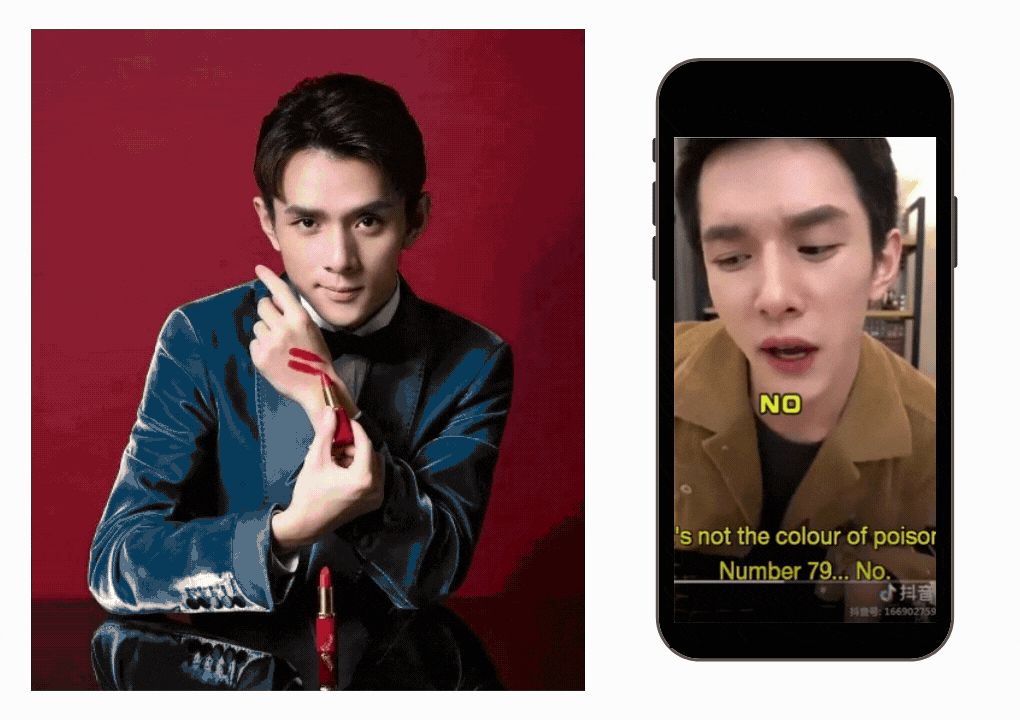
KOLs offer valuable insight into consumer preferences, create buzz through product reviews and endorsements, and provide a personal touch to online promotions, which resonates deeply with Chinese consumers.
For example, Taobao x Little Red Book’s Double 11 campaign last year collaborated with over 600 KOLs generating an estimated $14 bn sales revenue during the event period alone.
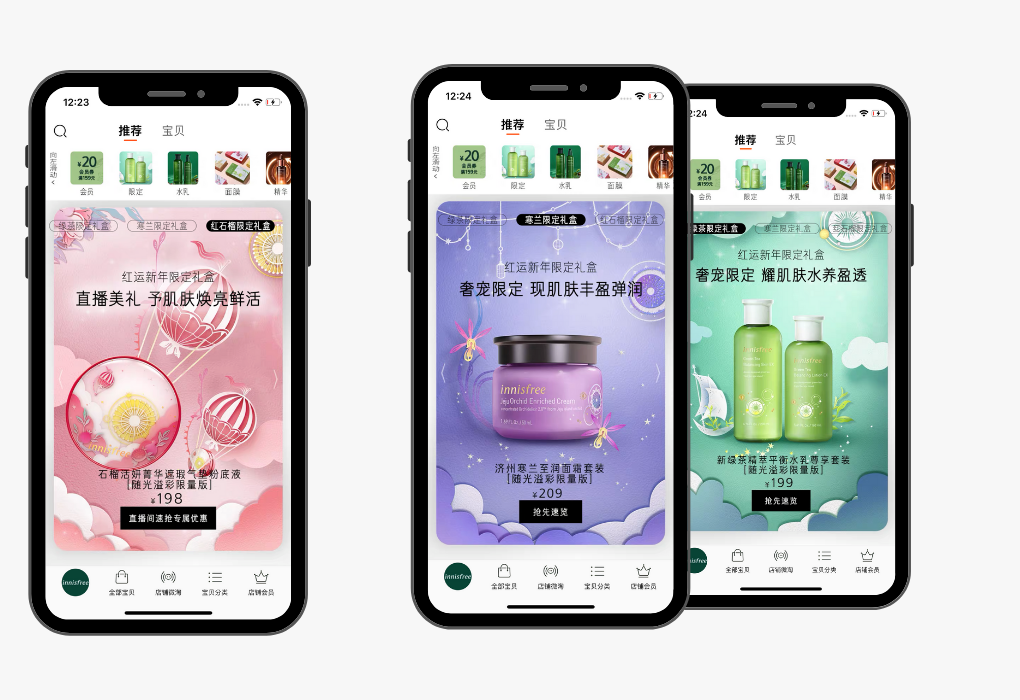
Another example, Estée Lauder collaborated with Chinese beauty influencer Xiaxue to create a limited edition lipstick collection exclusively available in China. Xiaxue promoted the collection on her Weibo account with over 10 million followers and created makeup tutorials using the lipsticks on her beauty vlog. The collaboration was a huge success, with the lipsticks selling out within hours of their release.
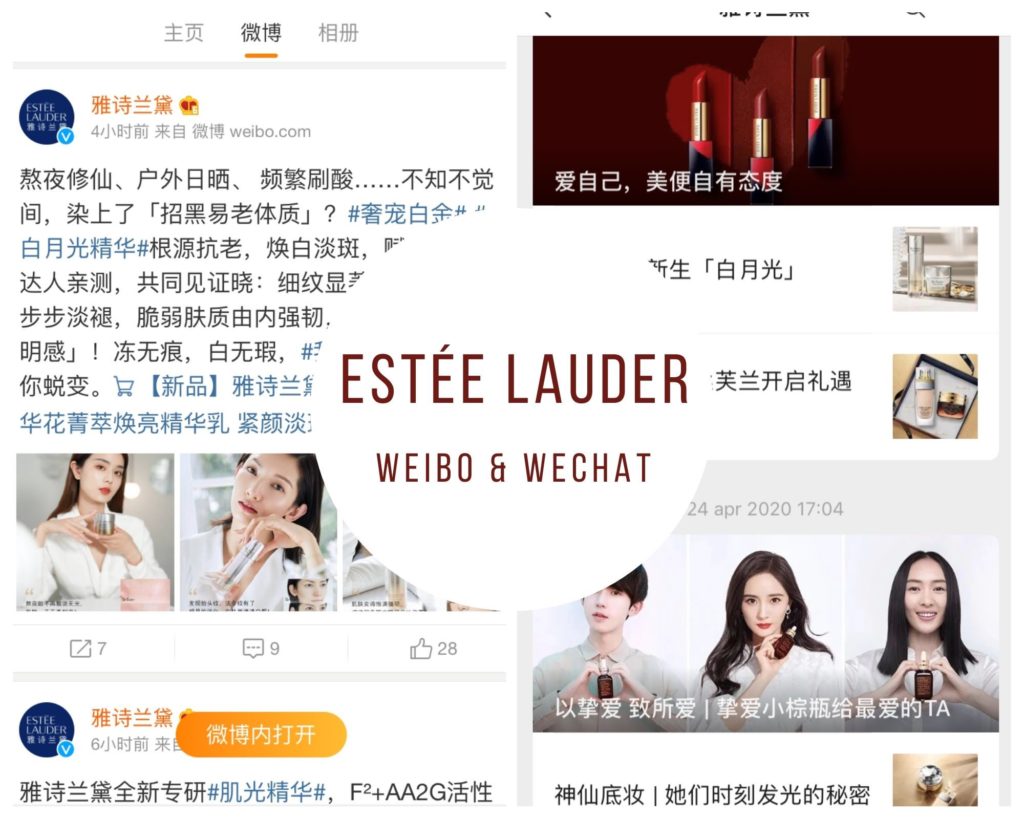
Shopping Experience And Service
Importance Of Luxury Retail Experience In Shaping Consumer Perception
Chinese consumers value the emotional and social connection they make with brands through their shopping experiences.
Luxury retailers provide a unique experience that fosters individual contentment and distinguishes them from other retailers.
To establish lasting brand loyalty and satisfy Chinese consumers’ needs, high-end retailers must prioritize providing personalized services that align with consumers’ expectations.
Role Of E-commerce And Online Shopping Experience In Luxury Cosmetics Perception
As the Chinese luxury cosmetics market continues to grow, e-commerce and online shopping have become increasingly important for brands looking to reach new consumers.
Online channels such as Taobao provide a convenient platform for consumers to purchase products from their favorite brands or internet celebrities.
To cater to this trend, luxury cosmetic brands are adopting an omnichannel approach that combines both online and in-store experiences. By doing so, they can create a seamless shopping experience for consumers while still providing personalized services at physical locations.
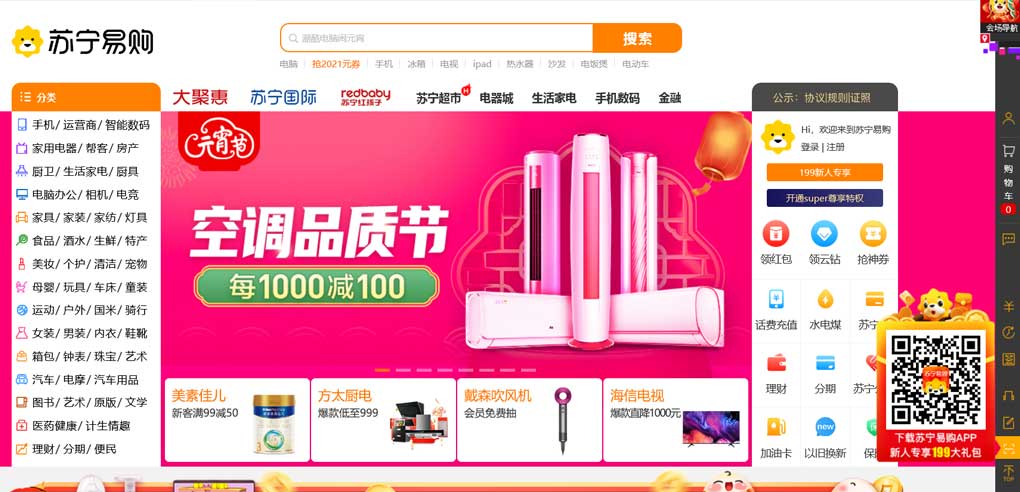
Sustainability And Ethical Considerations
Chinese consumers are becoming more conscious about sustainability and ethics when buying luxury cosmetics. They seek products that align with their values and reflect responsible practices in areas such as sourcing ingredients, manufacturing processes, and packaging.
Growing Importance Of Sustainability In Chinese Consumers’ Perception
Chinese consumers are increasingly valuing sustainability when it comes to luxury cosmetics, as per the Global Consumer Insights Survey 2021 by PwC.
More consumers are considering ethical and environmental factors when making purchasing decisions.
This trend is visible in various industries, including luxury cosmetics, where brands are prioritizing eco-friendly production methods and packaging design.
For example, brands like L’Oréal and Estée Lauder have introduced sustainable initiatives to reduce their carbon footprint and promote sustainable practices.
Perception Of Ethical And Responsible Luxury Cosmetics Brands
Luxury cosmetics brands need to be responsible and sustainable to meet the growing demand from environmentally, socially and ethically conscious consumers. Chinese consumers are also seeking out products from brands that align with their values.
Effective communication of ethical considerations is crucial for the success of ethical and sustainable luxury cosmetic products.
For example, Aesop, a skincare brand, highlights its use of plant-based ingredients sourced sustainably and reflects its minimalistic approach towards sustainability through its simplified packaging style, which resonates well with conscious consumers.
We are your local partner in China!
The Chinese luxury cosmetics market is a lucrative opportunity for international brands due to the demand from the growing middle class. Cultural influences shape perceptions of beauty and luxury, so it’s important for brands to consider local preferences when marketing products.
Other factors, such as brand reputation, quality, packaging, celebrity endorsements, shopping experience, affordability, and sustainability, also influence consumer perception.
Understanding these factors is essential for brands to effectively position themselves in the competitive market.

We are a China-based marketing agency offering cost-effective solutions to foreign brands interested in tapping into the Chinese market. Our team of Chinese and foreign experts has the experience and know-how needed to succeed in this lucrative, yet complicated market.
Gentlemen Marketing Agency offers many digital marketing and e-commerce solutions, such as web design, e-commerce and social media marketing strategies, localization, market research, KOL marketing, and more.

Don’t hesitate to leave us a comment or contact us, so that we can schedule a free consultation with one of our experts, that will learn about your brand and present you the best solutions for your China market strategy.


